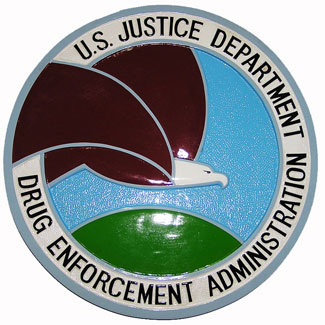

Welcome to the Weekend POU!
Today we look at the career of law enforcement pioneer Arthur Lewis
When he began a career in federal law enforcement, Arthur Lewis set a simple but ambitious goal.
He wanted to see his photograph hang on the wall in a prominent place of honor among the hierarchy.
In a journey that took nearly three decades, Lewis rose through the ranks as a trailblazer in the U.S. Drug Enforcement Administration.
He became the first African American acting deputy administrator of the DEA during a career that took him from the gritty streets of Harlem as an undercover agent to the second in charge of the agency in Washington.
“It was hard work and it was difficult,” Lewis, recalled during an interview at his Cherry Hill home. “But to me, it was very worthwhile.”
He not only broke down racial barriers to climb the ranks in the DEA, but also led a successful civil rights legal battle in the 1970s that won better treatment for African American and female agents.
“He’s a living legend, a legend for all ages,” said Lewis Rice, a former special agent in charge of the DEA’s office in New York who was mentored by Lewis.
Lewis worked undercover for 12 years posing as a drug dealer, considered the riskiest part of investigative work. His assignments took him across the United States, Mexico, Canada, and Europe to some of the most dangerous drug hot spots.
Like many black agents during that time, Lewis joined the then-Federal Bureau of Narcotics in New York City in 1956 as a clerk. He would train at night with white agents and was forced to combat racism on the job.
“They weren’t very nice about it,” he said of his fellow agents.
Lewis risked his life daily, meeting drug dealers in unsavory places to penetrate major heroin-trafficking rings prevalent at that time.
“I didn’t even have a gun,” he said. “I would go into buildings and buy drugs. It was dangerous as heck. A lot of times you had no backup.”
Lewis successfully infiltrated drug organizations by working with insiders to build trust. It took two years to become a full-fledged special agent with a badge and a gun.
“I was a slick New Yorker,” he said. “You learn how to play the game and stay alive.”
While working as a young agent in Detroit, his cover was blown and local gangsters put out a hit on him. He moved his family to New York for safety.
“They were looking for me because they wanted to kill me,” Lewis recalled.
Lewis survived the assassination plot, but his informant and the informant’s girlfriend were murdered by the gang. The informant was shot; his girlfriend was stabbed and her head severed. Lewis had to identify the remains.
“I will never forget that. It was treacherous,” he said.
His wife, Evelyn, stayed home to raise their three children as the family moved around the country. After a bar fight with a suspected drug dealer who believed Lewis was an informant, Lewis came home with his head bandaged.
His wife’s only comment, Lewis recalled with a chuckle: “I see how you’re looking. How does the other person look?”
“Arthur Lewis is a legend within DEA, renowned for working his way to the top through hard work, dedication, perseverance, and revered for his incredible insight and leadership skills,” said DEA Administrator Michele M. Leonhart.
“His influence, reputation, and accomplishments left a lasting imprint throughout DEA and built a legacy that has benefited not just the African American community, but the entire profession of law enforcement. He stood out then among his peers, and is a giant within DEA today.”
Lewis landed in federal law enforcement after serving in the Army during the Korean War.
He eventually was transferred in the Justice Department’s Drug Enforcement Administration and moved up the ranks. He served as a deputy regional director in Detroit.
When he became special agent in charge of the Mid-Atlantic region in 1971, based in Philadelphia, the first black to hold the position, his photo was placed on the wall, fulfilling a dream he had never shared with anyone. “I loved my work,” he said.
Under his leadership, the Philadelphia Joint Narcotics Task Force was formed. It is among the longest-running joint narcotic task forces in the country.
President Jimmy Carter named him acting deputy administrator in 1977 in Washington. But Lewis said he is most proud of his role in challenging the status quo in the DEA.
Lewis joined a group of black agents in a class-action employment discrimination lawsuit filed in 1977 against the Justice Department, alleging that they were treated unfairly, systematically passed over for promotions, and paid less than whites. At the time, roughly 7 percent of the DEA’s nearly 2,000 agents were black. Lewis’ testimony as a top administrator was considered crucial.
A federal judge ruled in their favor, finding that black agents were assigned undercover work more frequently than their white counterparts, exposing them to greater dangers.
The case cleared the way in later years for other black federal agents to take similar legal action against agencies such as the FBI and the Secret Service.
“It was time for black people to move ahead,” Lewis said. “I felt I had an obligation to help everyone else.”
Reposted from philly.com



